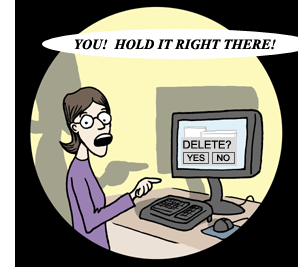 Serious and damaging cases of scientific misconduct are almost invariably found out. That’s because science is designed to get at how the world really works. Any fraudulent results that paint a false picture of the world will be uncovered as science proceeds and zooms in on the true picture. For example, in the early 1900s, the influential physiologist Emil Abderhalden claimed to have shown that humans produced protective enzymes that could be used in many practical ways — foremost among them, detecting pregnancy. The only problem? Such enzymes don’t actually exist — so of course, Abderhalden’s fraud was eventually found out by other scientists who could not reproduce his test results and found that his pregnancy test simply didn’t work.
Serious and damaging cases of scientific misconduct are almost invariably found out. That’s because science is designed to get at how the world really works. Any fraudulent results that paint a false picture of the world will be uncovered as science proceeds and zooms in on the true picture. For example, in the early 1900s, the influential physiologist Emil Abderhalden claimed to have shown that humans produced protective enzymes that could be used in many practical ways — foremost among them, detecting pregnancy. The only problem? Such enzymes don’t actually exist — so of course, Abderhalden’s fraud was eventually found out by other scientists who could not reproduce his test results and found that his pregnancy test simply didn’t work.
Science’s system of scrutiny, peer review, and checks and balances help accelerate the process of discovering and weeding out occasional cases of fraud. For example, the world was first clued in to Woo Suk Hwang’s fraudulent claims regarding stem cells when other scientists scrutinizing his work drew attention to an anomaly: some of his data looked too good to be true. DNA fingerprint graphs purportedly representing DNA from different samples showed peaks that seemed to be exact duplicates of one another — more likely the result of image manipulation than actual DNA fingerprinting analysis. The ensuing investigation revealed that the copycat graph peaks were only the tip of the iceberg. In fact, Hwang’s basic claim, that his lab had cloned human embryos and collected stem cells from them, turned out to be entirely fabricated!

Such flagrant examples of fraud can be disturbing and should lead to the indictment of offenders — but they should not lead to the indictment of science. Science has many safeguards in place to prevent fraud, and when fraud does happen, science has mechanisms for detecting it. Scientific misconduct may temporarily lead science towards incorrect conclusions, but the ongoing processes of science regularly correct such diversions.
- Visit the Visionlearning website to learn more about how ethical breaches can constitute scientific misconduct.
- Advanced: Visit the Visionlearning website for even more on the role of the scientific community in science.
